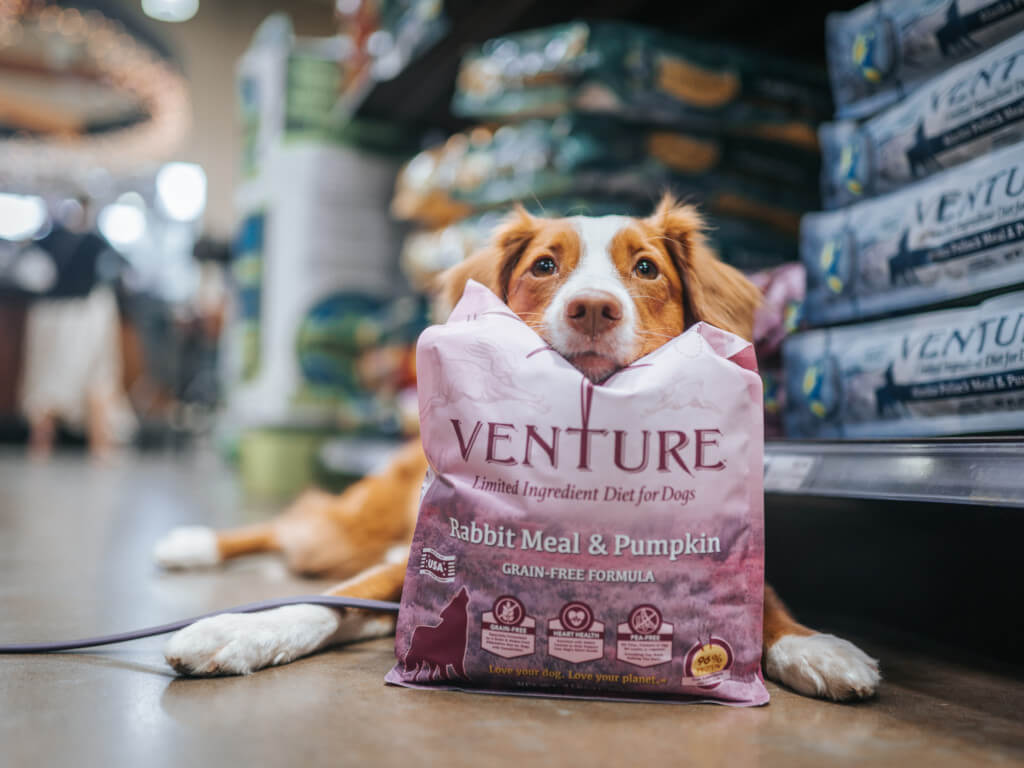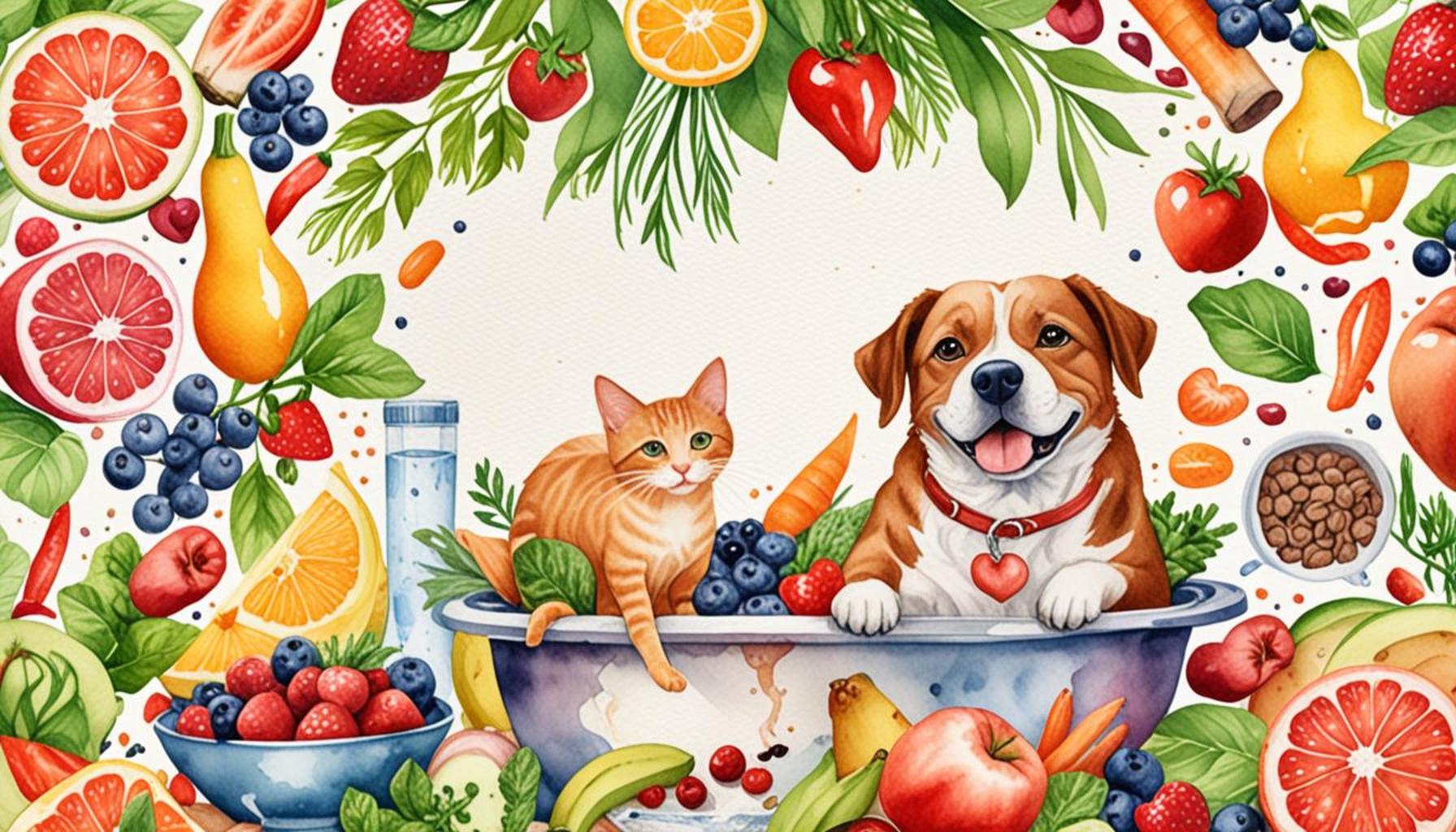Holistic Nutrition for Pets: Natural and Healthy Alternatives

The Benefits of Holistic Nutrition for Pets
For many pet owners, the journey towards better health for their furry friends often leads to a question: how can we provide the best nutrition? One answer lies in holistic nutrition, an approach that champions a comprehensive view of animal health and well-being. By focusing on how the body interacts with food, holistic nutrition aims to create a synergistic relationship between a pet’s diet and overall health.
So, what exactly does holistic nutrition encompass? At its core, it emphasizes:
- Whole Foods: This means choosing fresh, unprocessed ingredients such as meats, vegetables, and grains, which are often more nutrient-dense than conventional kibble. For example, a diet rich in whole foods could include fresh chicken, sweet potatoes, and carrots, rather than heavily processed pet food items.
- Natural Supplements: In addition to a balanced diet, holistic nutrition often incorporates herbs, vitamins, and minerals that enhance health. Common supplements might include omega-3 fatty acids for shiny coats or probiotics for gut health. Turmeric, with its anti-inflammatory properties, has also gained popularity among pet owners looking to support their pets’ health.
- Balanced Diets: Ensuring that a pet’s diet is complete and tailored requires understanding individual health needs. For instance, an active dog may require more protein and calories than an older, sedentary pet. Consulting with veterinarians or pet nutritionists can help create a tailored dietary plan.
The holistic approach not only supports physical health but also addresses mental and emotional well-being. This may lead to:
- Stronger Immune Systems: A nutritious, whole foods diet can bolster a pet’s defenses against illnesses, leading to a decreased reliance on pharmaceuticals for health maintenance.
- Improved Digestion: Whole foods often contain natural fibers that promote better digestive health, facilitating easier nutrient absorption and minimizing digestive issues.
- Healthier Weight Management: By focusing on quality ingredients and balanced meals, pet owners can more effectively manage their pets’ weight, helping to prevent obesity—a common issue among pets in the United States.
As pet owners increasingly align their dietary choices with a holistic philosophy, they explore diverse options for feeding their pets. From choosing high-quality commercial pet foods labeled as organic or non-GMO to preparing homemade meals, the landscape of pet nutrition is vast and varied.
In the upcoming sections, we will dive deeper into practical methods for implementing holistic nutrition in your pet’s diet. We’ll explore homemade recipes, discuss ethical sourcing of ingredients, and offer tips for easy integration of holistic practices into daily feeding routines. Join us as we uncover valuable information that can lead to healthier, happier pets.

Holistic Approaches to Pet Nutrition
Many pet owners are discovering the holistic philosophy by exploring how what their pets eat impacts overall health. Holistic nutrition for pets proposes a shift from traditional feeding methods towards a more thoughtful integration of natural ingredients that provide not just sustenance, but enhanced vitality.
Understanding holistic nutrition means considering a pet’s entire lifestyle, including their age, breed, activity level, and even emotional needs. This comprehensive approach redefines what it means to feed a pet well. Here are some key aspects to consider when embarking on this journey:
- Customization of Diet: Just like humans, pets are unique and have varying nutritional needs. Factors such as breed differences, health conditions, and personal preferences all play crucial roles in determining an ideal diet. For instance, a highly active breed like a Border Collie might thrive on a diet rich in high-quality proteins and complex carbohydrates, while a senior pet might benefit from easily digestible foods and joint-supporting nutrients.
- Ingredient Quality: The source of the ingredients matters. Look for locally sourced, sustainable options that ensure freshness and reduce potential exposure to additives and preservatives. Many reputable pet food brands now offer organic or grain-free options that prioritize ingredient integrity.
- Fresh Water Access: Adequate hydration is essential for maintaining overall health. Providing clean, fresh water encourages pets to drink more, reducing the risk of urinary tract issues and promoting better digestion.
The rising popularity of holistic nutrition has led to an increased awareness of how commercial pet food can sometimes fall short. In the United States, many pet food products on the market are overly processed and packed with fillers that may not contribute to a pet’s health. This discrepancy has prompted more pet owners to consider homemade meals or holistic alternatives.
The flexibility of holistic nutrition lies in its inclusivity of both conventional and innovative feeding practices. Pet owners are often encouraged to explore raw feeding, which involves offering uncooked meats, fruits, and vegetables. Advocates claim this mimics a pet’s ancestral diet, potentially yielding a variety of benefits, such as enhanced dental health and improved energy levels. However, it is essential to balance these diets appropriately and consult with veterinary professionals to ensure nutritional completeness.
Additionally, pet owners can delve into cooking at home, a practice that grants complete control over ingredient selection. Popular home-prepared recipes include canine-friendly concoctions such as turkey and quinoa bowls or dogs’ versions of meatloaf. For cats, home-cooked meals may incorporate chicken, pumpkin, and fish oil for maximum flavor and health benefits. Each recipe promises a level of transparency found lacking in processed food options, appealing to mindful pet owners.
The commitment to holistic nutrition extends beyond food selection; it signifies a lifestyle choice that champions the overall quality of life for pets. Engaging in a dialogue with veterinarians about the best dietary choices opens doors to discovering unique nutritional paths that cater to specific needs. As we continue to explore the world of holistic nutrition, it becomes evident that the choices made today can pave the way for healthier, happier pets tomorrow.
| Advantage | Description |
|---|---|
| Natural Ingredients | Holistic nutrition emphasizes the use of natural ingredients free from preservatives, additives, and fillers. |
| Improved Health | A balanced and nutrient-rich diet can lead to enhanced vitality and longevity in pets. |
| Customized Diets | Holistic nutrition allows for tailored diets to suit the specific needs of different breeds and health conditions. |
| Digestive Health | Many holistic foods incorporate digestive aids like probiotics, promoting gut health and nutrient absorption. |
| Ethical Sources | Support for sustainable farming practices through ethically sourced ingredients is a core aspect of holistic pet nutrition. |
Incorporating a holistic approach into your pet’s diet not only focuses on nutritional value but also considers their overall well-being. By providing pets with natural alternatives, you can contribute to their happiness and health. With more pet owners becoming aware of the benefits of holistic nutrition, exploring less processed options is becoming increasingly essential. This shift towards a holistic framework is not just a trend; it’s shaping the future of pet care. As pet lovers continue to seek knowledge about the best nutritional choices for their beloved companions, understanding these natural and healthy alternatives will be crucial in achieving optimal health for their furry friends.
Exploring Natural Supplements and Alternative Therapies
As pet owners delve deeper into the realm of holistic nutrition, many are discovering the benefits of natural supplements and alternative therapies. These can serve not only to enhance a pet’s diet but also to address specific health concerns without resorting to conventional pharmaceuticals.
One highly regarded category of supplements involves omega fatty acids, which are essential for promoting a healthy coat and skin. Omega-3 and Omega-6 fatty acids can be found in sources like fish oil, flaxseed oil, and algae. These supplements have been shown to support cognitive function and joint health, making them particularly beneficial for aging pets and those with inflammatory conditions.
Another popular supplement is probiotics. These beneficial bacteria aid in digestive health and can help to balance the microbiome in pets. For example, a study published in the Journal of Veterinary Internal Medicine found that probiotics can improve gut health in dogs, leading to better nutrient absorption and overall well-being. Adding probiotic-rich foods such as plain yogurt (if your pet tolerates dairy) or specially formulated pet probiotic supplements could lead to significant improvements in gut flora.
Furthermore, herbal remedies have gained traction in holistic pet care. Herbs such as turmeric and ginger have anti-inflammatory properties that can assist pets suffering from arthritis or joint pain. Meanwhile, herbs like milk thistle may promote liver health and detoxification. Before introducing any herbal remedies, consulting with a veterinarian knowledgeable in holistic practices is advisable to ensure safety and efficacy.
Holistic nutrition also embraces alternative therapies such as acupuncture and chiropractic care. These methods can provide relief from various issues, including pain management and mobility challenges. While not directly related to nutrition, they contribute significantly to the overall health and quality of life for pets, making them an essential consideration for holistic pet owners.
The Influence of Raw Diets
The debate surrounding raw food diets continues to intrigue many pet owners seeking holistic nutrition. Proponents argue that raw diets—comprised primarily of uncooked meat, bones, and organ meats—mirror a pet’s natural eating habits and could lead to improved vitality. However, it’s crucial to note that raw feeding requires careful planning to ensure a well-balanced diet, including appropriate supplementation, to avoid nutritional deficiencies.
Research indicates that pets on raw diets may experience benefits, such as reduced allergies, healthier skin, and improved dental health. The American Veterinary Medical Association (AVMA) has expressed concerns regarding the potential risks of pathogens in raw diets, which underscores the importance of maintaining a clean feeding environment while following this approach. Engaging with a vet can provide valuable insights into whether a raw food diet is suitable for your pet’s health and needs.
As the holistic pet nutrition trend gains momentum, pet owners are encouraged to share their experiences and findings within their communities. Online forums, local pet expos, and social media groups serve as platforms for exchanging knowledge about natural alternatives and building awareness about the benefits of holistic approaches. This collective information empowers more pet owners to make informed choices, ensuring healthier, happier lives for their beloved companions.
Conclusion
In conclusion, holistic nutrition for pets represents a transformative approach that emphasizes the interconnectedness of diet, health, and well-being. As more pet owners seek natural and healthy alternatives, the pathway to a robust and vibrant life for our beloved companions becomes increasingly clear.
This exploration unveils a wealth of options—from natural supplements and herbal remedies to alternative therapies like acupuncture and chiropractic care. Each element serves not only to enhance nutrition but also to address specific health concerns while minimizing reliance on pharmaceuticals. As highlighted, integrating omega fatty acids and probiotics can significantly promote both physical health and behavioral well-being.
Moreover, the ongoing debate surrounding raw diets emphasizes the importance of careful planning and veterinary guidance to ensure balanced nutrition. With proper research and community engagement, pet owners can make enlightened choices that cater to the unique needs of their pets.
As we move forward, fostering a culture of knowledge-sharing within communities and utilizing digital platforms can empower an informed approach to holistic pet care. In doing so, we not only enhance the quality of life for our pets but also build a network of passionate advocates who champion the cause of natural, nourishing diets. Ultimately, the journey towards holistic nutrition will not only transform the lives of pets but can also enrich the bond between pets and their humans.



